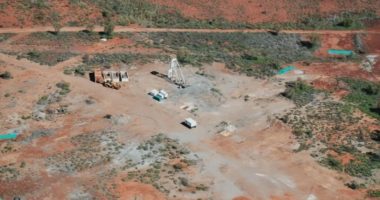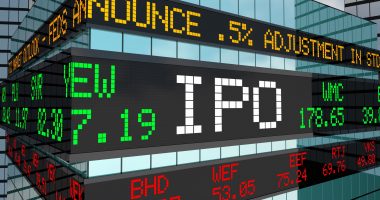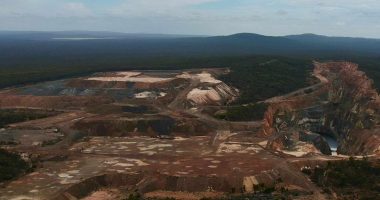Western Australia is heading to the voting polls on March 8, with the incumbent Cook Labor government looking to retain the state leadership in what would be a third straight win after strong 2017 and 2021 elections.
While there are plenty of battlegrounds where Labor and Liberal will clash, a big one is the mining and materials industry – a sector HotCopper, of course, knows well.
In the build-up to the big ballot day, HotCopper’s Sonia Madigan spoke with the Hon. David Michael, Labor’s current Minister for Mines and Petroleum, about what investors can expect for WA businesses should Labor be re-elected.
Above is the interview in video. Below is the full transcript of the interview.
Transcript: Hon. David Michael speaks to HotCopper
Sonia Madigan: We’ve invited the leaders of the major parties to present their case regarding what they’re doing to benefit ASX-listed companies and investors. Mining is WA’s major industry so it’s fitting David Michael joins us. Welcome David. So, how do you plan to stamp your mark on the mining and energy portfolio?
Hon. David Michael: Well, if I’m lucky enough to be the Minister for Mines and Petroleum after March 8, I want to continue to work with industry to make sure we as the state government have those policy settings right to ensure our mining operations continue to flourish in Western Australia as they have for many, many decades – mining capital of the world – and I wanna make sure we get those settings right.
SM: Talking about those settings we certainily hear from a lot of company leaders that approvals processes are holding back progress.
DM: We’ve made some great improvements in approval processes, we commissioned the Vogel-McFerran review, which I think we released towards the end of 2023, and all through last year we’ve been implementing those recommendations, including legislation changes to make sure that environmental approvals are as efficient as they can be without a negating the need to have strong environmental approvals. So, for our social licence to the community has confidence that we’re doing the right thing, both the industry and the environment.
SM: Well, do you agree that as things are now, it’s taking too long?
DM: I agree that we can always look to ways to make things more efficient. My own department, it’s something we’re doing in terms of of the Department of Mines of Demers, in terms of we’ve just rolled out a new system, resources online, getting some good feedback from industry, including turning around program of work applications a lot quicker, making it much more streamlined, but also things like we’re trialling eligible mining activity, which is that low impact exploration activity where we’re hoping to turn around approvals within one business day.
SM: Well certainly the cultural heritage legislation is causing smallcap companies problems and we’re hearing that day after day. Is that important to Labor?
DM: It’s important to get those settings right as well, and my colleague, the Minister for Aboriginal Affairs, Tony Buddy, is well aware there are issues and I know that our government will continue to work through those with industries and but also traditional owners, should we be re-elected on March 8.
SM: What are the industries that Labor is most focused upon in mining and what are the commodities that Labor cares about the most?
DM: Look, we know in WA that the mining of iron ore and gold and also the production of grain and wheat, are our big three industries in WA and we must always look to see what we can do to make sure that those approvals and those operations are as efficient as possible so we can get our products to market and they’ll always be very important to WA. We wanna make sure we have a diversified economy so as well as a whole host of other things in the mining sector, [we are] looking at the critical mineral space. The Geological Survey Finland a few years ago, and I say that cause I’m half-Finnish, did a report that said just for the first generation of decarbonising the globe by 2050, there’s not enough proof resources out there of lithium and nickel and those other critical minerals to do that. So we know in the future we’re gonna need a lot of these minerals that we have under the ground in WA. We have lots of it, we have some great minings and some great exploration happening looking for these minerals. We know there are current price challenges, but I really see in that critical minerals rare earth space, that’s where WA is really gonna shine. I see a bright future ahead.
SM: You mentioned there, of course, nickel and lithium – there is a downturn. With that in mind, is it perhaps time to look at uranium and the policy on uranium and the potential to bring jobs to that industry?
DM: We think the jobs are in the critical mineral industry. I don’t see a world in 10 or 20 years time when most of us won’t be driving an EV and we see them lots on the road. And, you look at some countries like Norway, where the EV uptake every year is increasing and increasing. That’s where our focus will be. WA Labour went to two elections now with a promise of no new uranium mines given there were some already approved and that’s not changing.
SM: But in this day and age, and with the power needs that we know are ahead of us, is it even sensible to be anti-uranium?
DM: In terms of those power needs, we are turning coal off by 2030 in Western Australia and we know renewable will be the way to go with filling those holes in the grid. And you saw just yesterday some great announcements regarding home batteries and those big batteries we are building down in Collie to fill that gap.
SM: Can that be enough?
DM: I think it will be, absolutely… with gas as an important transition.
SM: And I do want to talk to you about gas; what is the state government doing to help projects in the gas space?
DM: You might have seen an announcement the premier made late last year regarding gas projects and making sure that for industry and for our Community, we retain the reservation policy. Trying to make those settings right as best we can to enable more exploration and bringing more of our gas to market. Not only for ourselves, but we know gas is an important transition fuel. Especially for our friends, especially in South East Asia, like Japan, like Korea, to allow them to work to gradually get away from coal.
SM: So is this about allowing the shipping of gas?
DM: Obviously from the North West shelf that already occurs, but when we have these settings we are continuing the policy that a percentage does come back to WA – that’s something we wanna make sure we keep for our industries including the mining industry and that downstreaming, making sure we keep those policies intact.
SM: So, what other policies can you mention for other sectors and industries considering that we cover the board for investors across manufacturing, energy, real estate, biotech, IT, AI, telecommunication, consumer staples, you name it!
DM: Well, there’s a lot involved in that and I’d encourage everyone to have a look at this document, which was released yesterday on roger.cook.com.au. You can get this — this is our plan for our Made in WA policies. It includes things like vanadium and making vanadium batteries here in Kalgoorlie to be deployed especially in those remote on isolated grids in WA. It talks about manufacturing home batteries as well, which we’re hoping to do, but this goes through a large amount of those other industries not mining a petroleum rail, which are the things I know about things like tourism, biomedical research, all these things to diversify economy as best we can, noting that we know as I said, iron ore and gold and wheat and grain will be very important to our state. But we need to do more things. And the good news is it’s already happening.
SM: Well, before we go can we address the housing crisis? What is Labor’s solution going to be to that crisis given we’ve clearly allowed too many people into Australia since COVID-19 and that’s been under the federal counterparts?
DM: Well, again, you’ll see Labor has a suite of policies to bring more traders into WA, to build more houses as quick as we can. Obviously, we’ve had those other schemes to assist people with rentals, to bring more rentals back on the market, maybe from some of those Airbnb and those kinds of short stay accommodation… trying to get more homes on the market as quickly as we can; over 2000 homes built in the last few years for social housing to try to help with the waitlist. No silver bullet, all governments around the world, the Western world, are dealing with this issue, but we are throwing everything we can at at housing. And again, a lot of this is about getting more traders in to build these homes as quick as we can for West Australians.
SM: But then don’t they need houses too?
DM: They do, they do and this is why it’s a wicked problem that everyone is dealing with. So again, we’re we think we think we’ve got some good settings to try to resolve these issues as best we’re able to. And noting that every governor around the world is dealing with similar issues.
SM: Anything else you want to add for Labor’s case for the March 8 election?
DM: Well as the Minister for Mining and Petroleum, I’m incredibly lucky to have this role given mining is so important for WA and for our nation’s economy, but also for jobs for West Australians and they’re not just those directly working in the mining industry, there are lots more people who who might not identify that they work in the mining industry but they kind of do if you look at the mining services sector. We do an amazing job for the world in terms of what we export; we do an amazing job in the world in terms of those mining services we export around the world.
DM cont.: I just want to thank everyone involved from investors who help fund some of these projects, but also that great work that happens around the world.
Join the discussion: See what’s trending right now on Australia’s largest stock forum and be part of the conversations that move the markets.
The material provided in this article is for information only and should not be treated as investment advice. Viewers are encouraged to conduct their own research and consult with a certified financial advisor before making any investment decisions. For full disclaimer information, please click here.






